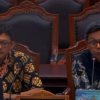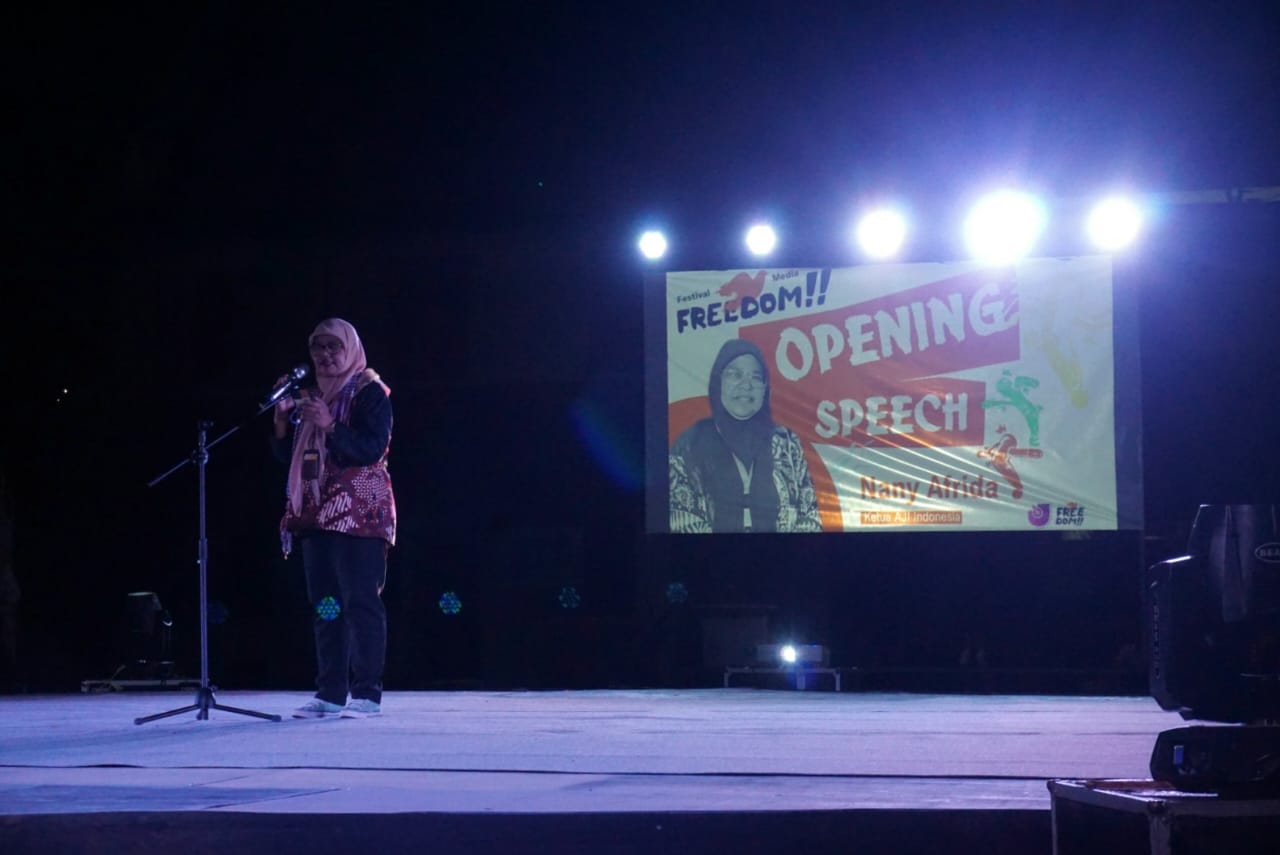Independen --- Suwarni tries to be unwavering amid eerie quietness surrounding her street stall in the old town area. The 51-year old woman had been selling used kitchen utensils since 2008, even though recently her sales are lower than usual.
“My income [fell] sharply. People do not dare go out. It was down by 75 percent, and it is barely enough to eat,” Suwarni told serat.id at the end of July.
Like most industries, the market for secondhand goods started to decline when the Covid-19 pandemic hits Semarang, Central Java. The sales Suwarni made was much different compared to holiday seasons or regular weekends before the epidemic.
Antique-seller Tri Putu (49) was also complaining about the dwindling popularity of his wares. Before opening a stall at the Creative Industry Gallery (GIK), Putu used to be at the Sri Gunting park. The GIK itself is part of the Indonesian Trade Company (PPI) building specifically allocated for secondhand and antique goods traders in the Old Town area.
“I closed my stall for three months when Covid-19 [first broke] and just re-opened the last two weeks. My earnings have fallen to 80 percent,” said Putu.
The condition got worse when the government imposed social restriction on Old Town, causing visitors to dwindle. “Before Covid-19, the building was open from 9 AM to 10 PM, but now it’s 10 AM to 6 PM. In the meantime, visitors [usually] started coming at night,” explained Putu.
Moreover, tourist sites such as the 3D Trick Art Museum, Blenduk Church, and Sri Gunting garden were also closed. Most traders in the Old Town area suffered from a significant decrease in their turnover.
They had to rack their brains so that their livelihood can survive the Covid-19 pandemic. Some opted to use the epidemic as momentum to switch their businesses to producing masks and herbal drinks and sell them through the online market.
Chairperson to the Old Town’s Creative Industry Gallery (GIK) trader’s association Anton Susatyo Singgih admitted the sad truth of the member of his tribe during the Covid-19 pandemic. “We are truly saddened with the current condition. The impact of the Covid-19 pandemic to the economy of traders at Semarang’s Old Town” said Singgih.
According to him, there are virtually no more visitors who stopped by at the gallery. Whereas before the pandemic, every night, the Klithikan market—an old nickname for the vintage market, was always crowded. Most of them were visitors from out of town looking to purchase antiques for home or café decorations.
“Before the pandemic, GIK was a bustling market. We would close at 10 PM. But now we have to close at 6 PM as the government instructed, and there is not a single visitor from morning till evening,” explained Singgih.
According to him, every one of the 36 members of his trader association could earn Rp 30 to 50 million (US$2,040-3,400). However, the pandemic had really hit the traders hard as their earnings took more than 50 percent blow when most of them still have to pay credit installments, i.e., for a motorcycle, at the bank.
“The harshest effect of the pandemic is having to pay the motorcycle installment. You have to work extra hard,” said Singgih.
Now, the Klithikan traders of Old Town could only surrender to their fate and followed government instruction. Even when they are allowed to open, they have to follow health protocols.
Online Marketplace as a Temporary Solution
Hoesie, another antique seller at Semarang’s Old Town GIK, used social media to showcase his wares when his stall had to close for five months during the pandemic.
“The stall is like a warehouse. So, I only go there to get the goods if there is an online order. If [we] did not go online, we could collapse,” said Hoesie.
[Video graphic] During the Covid-19 pandemic, café and restaurant businesses in Semarang’s Old Town has gone to a standstill. (serat.id/A. Arif)
Even though he managed to sell his goods online, Hoesie admitted that it was not the same as his income before the Covid-19 pandemic.
“But yes, [business] is still on, and there are profits. Customers who ordered [online] were old customers who are rich and know the goods,” explained Hoesie.
In addition to the lack of sales due to the pandemic, Hoesie also complained about the scarcity of antique goods that he had to sell again. The effort to hunt antiques has become more difficult because the owners are afraid to interact, which further hampers antique sales trade.
Member of Central Java Legislative Council (DPRD) Riyono regretted the lack of breakthrough by the government to stimulate the region’s economy, including MSME owners in the provincial capital’s Old Town—currently being promoted as a tourist destination.
“The government should be helping MSME owners that are dying in the pandemic,” said Riyono.
Riyono also viewed that the government is slow in realizing the economic recovery program, leaving many MSMEs struggling for capital.
Apart from that, the information on a Rp2.4 million budget stimulus for MSMEs has not reached all business-owners.
“There is the discourse that the central government would provide capital for MSMEs. However, many MSME owners still don’t know about the program,” explained Riyono.
A Rp 1 trillion fund from the Central Java government for the MSME stimulus fund was only 20 percent disbursed. Furthermore, out of the 4 million MSME in Central Java, only 26,000 who received the fund.
“It should be noted that there is not even half who received the MSME stimulus fund,” said Riyono. (*)
Special edition “A SUDDEN STILLSTAND IN THE MIDDLE OF THE PANDEMIC.”
Reporting team: Praditya Wibby, Anindya Putri, Contributor 1, Contributor 2, Contributor 8
Editing: Edi Faisol, Illustration: A. Arif
*This article was published in Bahasa at Serat.id in August 2020









